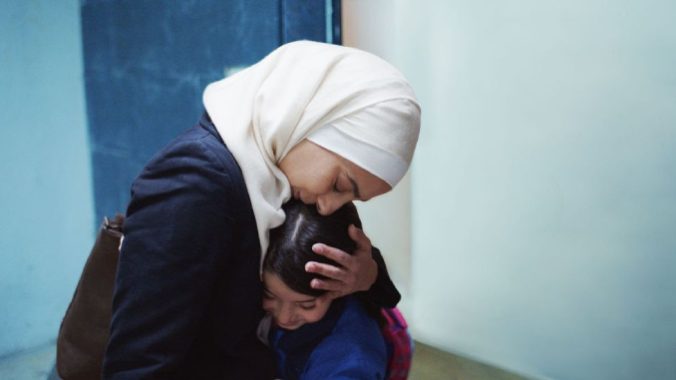Inshallah a Boy Makes the Ordinary into Compelling Drama

At a film festival, there’s usually a whisper network. As you step in and out of cinema halls, sometimes forgetting what day of the week it is or whether you just had breakfast or lunch (or was it dinner?!), you start hearing names of movies with serious buzz. “Did you see [Insert Name of Film]?” someone will remark in the inevitable lineups for the washroom or rush tickets. At the 2023 Toronto International Film Festival, Inshallah a Boy was one of the films I kept on hearing about. Sure, there was also loud talk of Dream Scenario, American Fiction and Hit Man given the talent involved. But that underground chitter-chatter? That was for Jordanian filmmaker Amjad Al Rasheed’s debut.
Somehow, I kept missing Inshallah a Boy at TIFF. In hindsight, I’m glad I did not watch it in the rush of the festival. There was some serious FOMO, however, especially when I saw Al Rasheed, dressed in an electric blue jacket and pants, his beaming smile eclipsing his charming ensemble, bound upwards on the notoriously steep escalators of Toronto’s Scotiabank Theatre. He was headed to one of his movie’s screenings, where a colleague told me he got a standing ovation. Now that I’ve seen it, I can say that it was clearly well-deserved.
Inshallah a Boy has a quiet ordinariness to it, which I was glad to sink into when I watched it at home. In just under two hours, the film tells the story of Nawal (Mouna Hawa), a personal support worker in her 30s, whose life is upended by the sudden death of her husband.
At first, she has to deal with the grief of losing a spouse and taking care of her young daughter. But then her brother-in-law Rifqi (Haitham Omari) starts demanding payments for the money he is owed. According to local custom, he can lay a claim to Nawal’s home and take guardianship of her daughter. Nawal’s only recourse is a male heir. In order to keep her brother-in-law at bay, she claims to be pregnant. Over a course of three weeks, Nawal faces one challenge after another as she fights to own what’s rightfully hers and to protect her daughter.
-

-

-

-

-

-

-

-

-

-

-

-

-

-

-

-

-

-

-

-

-

-

-

-

-

-

-

-

-

-

-

-

-

-

-

-

-

-

-

-








































